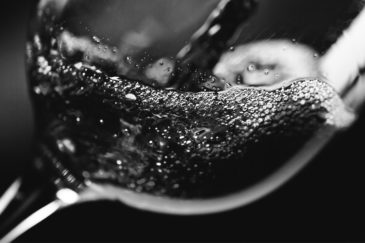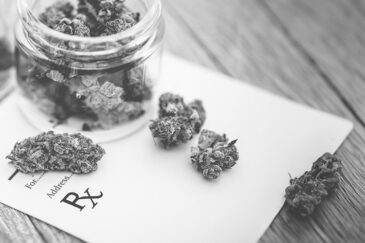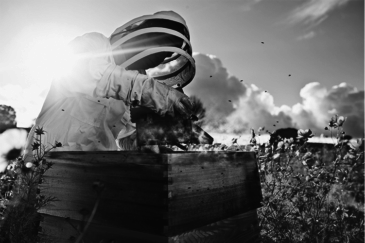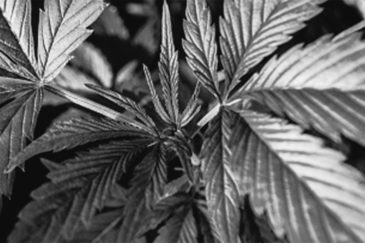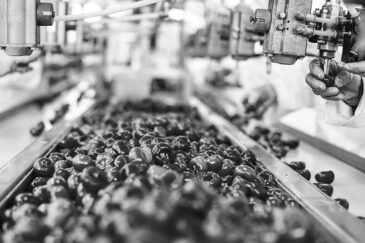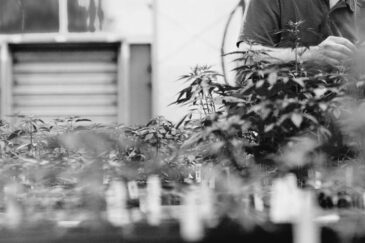Yousoon Baek, Ph.D., is a lecturer in the School of Integrative Plant Science at Cornell University. Yousoon’s expertise focuses primarily around hemp production and processing. With a comprehensive background in plant sciences encompassing physiology, genetics, and molecular biology, her particular interest lies in plant reproduction. She actively collaborates with faculties at Cornell University to develop courses, integrating their pioneering research in hemp sciences to enhance the course content and provide students with the latest advancement in the field.
Request More Info
Overview and Courses
As the U.S. hemp industry thrives across textiles, CBD products, health foods, and fuel, it's sparking a green revolution. The cultivation of hemp unlocks remarkable environmental and economic possibilities. Throughout these six comprehensive courses, you will explore the world of hemp plants and cultivation. First, you will develop a foundational scientific understanding of cannabis terminology, species, and cultivars. You will then explore various propagation methods and their specific purposes, allowing you to align these techniques with your growth, production, and agricultural goals.
You will also gain an understanding of the environmental factors impacting optimal growth for indoor hemp cultivation. You’ll develop an understanding of the strategies utilized to garner successful outdoor cultivation of industrial and large-scale hemp plants. Throughout the program, you will discover how to combat threats from insect pests, weeds, and plant pathogens.
Lastly, you will determine the precise timing and methods for harvesting hemp crops, tailored to your agricultural objectives. This certificate program equips you with the essential knowledge and skills to thrive in today’s dynamic cannabis industry. By the time you complete this program, you will have developed a deep understanding of hemp cultivation, placing you at the forefront of the burgeoning cannabis industry.
The courses in this certificate program are required to be completed in the order that they appear.
Course list
Cannabis is a genus of flowering plants that includes several species. Hemp is a variety of the Cannabis sativa species and is grown specifically for its strong fibers and seeds, which are used for various industrial, medicinal, and food products. Cannabis is a complex plant with a variety of characteristics and features, including growth habits, chemical composition, and genetics.
In this course, you will explore the differences among cannabis species in order to help determine their suitability to different agricultural goals. You will also review the many different cultivars, or varieties of plant, within each species, each with its own unique combination of traits, such as high fiber content, high seed yield, or high CBD content. Lastly, you will examine the physiology and morphology of hemp to optimize growth and cultivation practices.
Upon completion of this course, you will have gained a basic scientific understanding of cannabis in regards to producing high-quality hemp crops. You will also be able to select the appropriate cultivar based on your agricultural goals to optimize hemp production.
- May 27, 2026
- Aug 19, 2026
- Nov 11, 2026
Hemp propagation is the process of producing new plants from existing ones, and there are several methods that can be used to achieve different agricultural goals. Some of the main types of hemp propagation methods include seed propagation, cloning (vegetative propagation), and tissue culture.
In this course, you will take a deep dive into the world of seed propagation and germination. Understanding these concepts will allow you to assess the germination of your chosen cultivars and make improvements if necessary. You will also explore cloning, or vegetative propagation, including the steps involved and limitations of this method. Lastly, you will explore micropropagation and the tissue culture method to round out your options for hemp propagation methods.
Upon completion of this course, you will have gained an understanding of the different methods of hemp propagation and how their purposes can help growers align propagation methods with their agricultural goals, such as increased yields, improved plant health, and higher-quality hemp products.
You are required to have completed the following courses or have equivalent experience before taking this course:
- Hemp Biology
- Jun 10, 2026
- Sep 2, 2026
- Nov 25, 2026
Indoor hemp cultivation requires careful consideration of various environmental factors. By controlling and monitoring these environmental factors, indoor hemp growers can create a suitable growing environment that helps them achieve their agricultural goals and produce high-quality hemp products.
In this course, you will examine indoor cultivation factors and best practices depending on your agricultural goals; this includes different growing media, light and temperature, and other potential manipulation factors. The aim of controlled environment growth is to achieve specific agricultural goals, such as increased yields, improved plant health, and higher-quality hemp products.
You are required to have completed the following courses or have equivalent experience before taking this course:
- Hemp Biology
- Hemp Propagation
- Jun 24, 2026
- Sep 16, 2026
- Dec 9, 2026
Growing hemp outdoors requires careful consideration of several factors to ensure success and meet agricultural goals. Identifying the appropriate outdoor site is crucial, and details such as access to water, soil quality, and exposure to sunlight should be taken into account.
In this course, you will explore the main considerations when selecting an appropriate outdoor hemp production site. This will include addressing the specific nutrient requirements of hemp crops based on their preferred soil type and fertilizer. Upon completion of this course, you will have an understanding of the factors that should be taken into account in order to select an outdoor site that is suited to your agricultural goals and provides the right conditions for growing a successful hemp crop.
You are required to have completed the following courses or have equivalent experience before taking this course:
- Hemp Biology
- Hemp Propagation
- Indoor Hemp Cultivation
- Jul 8, 2026
- Sep 30, 2026
- Dec 23, 2026
The management of insects, weeds, and diseases is critical to the success of hemp production. There are several strategies and tactics that can be used to minimize the impacts of these potential threats.
In this course, you will begin by reviewing the importance of weed management and how to easily identify different types of problematic weeds to determine which strategies would be best to implement. You will also explore various integrated weed management strategies, including methods for the successful management of cultural, biological, and physical threats. You will then delve into the world of pest management, from understanding the potential effects of pest infestation on your hemp plants to available resources to help identify these pests as well as proper management techniques. Additionally, you will explore hemp plant diseases and how to identify common pathogens present in your growing area.
Upon completion of this course, you will be able to identify effective management strategies for combating problematic weeds, insects/pests, and diseases to ensure successful hemp cultivation.
You are required to have completed the following courses or have equivalent experience before taking this course:
- Hemp Biology
- Hemp Propagation
- Indoor Hemp Cultivation
- Outdoor Hemp Cultivation
- Jul 22, 2026
- Oct 14, 2026
Hemp harvesting is an important step in the hemp production process. In order to achieve your agricultural goals, it is crucial to determine the best time to harvest the hemp for the desired product.
In this course, you will explore a variety of harvesting factors such as the maturity of the plant and how the desired use of the product can influence the ideal harvesting time. You will also identify the proper equipment that should be used to ensure a successful harvest; this could include items such as pruning shears or a combine, depending on the scale of the operation. After the hemp has been harvested, you will explore why it is important to store the product under optimized conditions to preserve its quality and maximize its shelf life before processing.
You are required to have completed the following courses or have equivalent experience before taking this course:
- Hemp Biology
- Hemp Propagation
- Indoor Hemp Cultivation
- Outdoor Hemp Cultivation
- Managing Insects, Weeds, and Diseases
- Aug 5, 2026
- Oct 28, 2026
Request more Info by completing the form below.
How It Works
- View slide #1
- View slide #2
- View slide #3
- View slide #4
- View slide #5
- View slide #6
- View slide #7
- View slide #8
- View slide #9
Faculty Author
Key Course Takeaways
- Develop a basic scientific understanding of cannabis plants, including terminology of species and cultivars
- Discover a variety of propagation methods and how to align these techniques with growth, production, and agricultural goals
- Explore how to grow hemp plants indoors and control indoor environmental factors
- Determine where and how to successfully grow industrial and large-scale hemp plants outside
- Master strategies and tactics for minimizing the threat of insect pests, weeds, and plant pathogens/diseases
- Understand when and how to harvest hemp crops for agricultural products

Download a Brochure
Not ready to enroll but want to learn more? Download the certificate brochure to review program details.
What You'll Earn
- Hemp Cultivation Certificate from Cornell University’s College of Agriculture and Life Sciences
- 60 Professional Development Hours (6 CEUs)
Watch the Video
Who Should Enroll
- Growers
- Horticulturists and agronomists
- Plant, seed, and greenhouse technicians
- Seed purveyors
- Plant breeders and breeding companies
- CBD product developers
- Agriculture regulators
- Entrepreneurs and business developers
- Supply chain managers
- IP lawyers
- Consultants
Explore Related Programs

“eCornell puts you in control of your education entrepreneurship. It allows you to choose what you need to learn and how you need to learn it at the right time.”
Request Information Now by completing the form below.
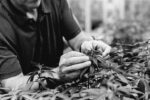
Hemp Cultivation
| Select Payment Method | Cost |
|---|---|
| $2,999 | |







